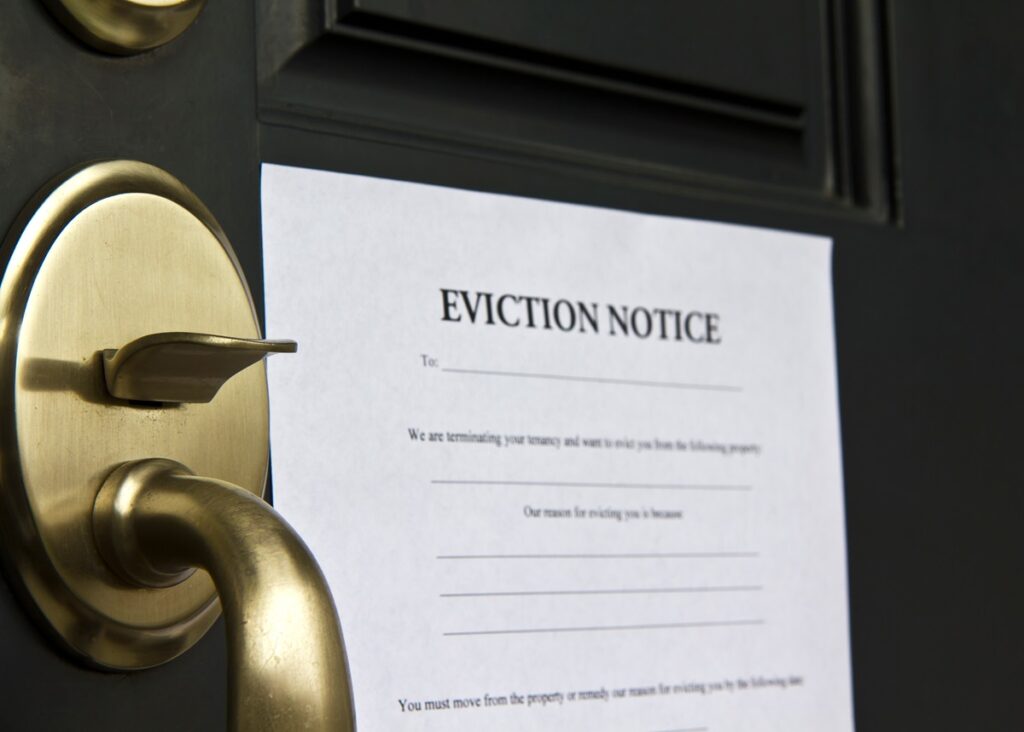The U.S. Department of Housing & Urban Development (HUD) has announced the availability of $40 million in grant funds for eligible non-profit or governmental entities to provide no cost legal assistance to low-income tenants at risk of or subject to eviction from their homes.
To ensure households have access to stable housing, HUD launched the Eviction Protection Grant Program (EPGP), a federal program to stabilize housing and prevent housing evictions through legal assistance, in 2021. HUD funded 21 grantees serving tenants across 19 states with $40 million during the first phase of the program in FY 2021 and 2022. Current grantees, as well as new applicants, will be considered for awards with this new round of funding.
“This program exemplifies HUD’s focus on helping renters,” said HUD Acting Secretary Adrianne Todman. “We are releasing $40 million to support our local partners, who are providing a crucial lifeline to people who risk losing their homes, particularly people of color, who disproportionately face eviction.”
As of March 2024, this program has helped more than 35,000 households avoid eviction. HUD funding has helped these organizations rapidly improve and scale up their services and respond to emerging tenant needs. Most tenants served through the program are people of color, and nearly half are from Black households. Nearly two in three tenants served have extremely low incomes, often living below the poverty line.
“Each year 7.6 million tenants face the threat of eviction. Black households, especially women and children, are more likely to experience the lasting harms of eviction. Research shows that evictions contribute to increases in homelessness, unemployment and hospital use. And the rippling harms of eviction reach beyond affected households–destabilizing and straining neighborhoods, schools, municipal social services, and regional economies” said Solomon Greene, Principal Deputy Assistant Secretary for Policy Development and Research. “We are excited for the opportunity to expand the program given the tremendous demand for these services. and we commit to sharing what we learn from grantee successes to provide models for communities across the United States.”
Fostering housing stability nationwide
The goal of the Eviction Protection Grant Program is to increase housing stability for low-income tenants through:
- Prevention: helping tenants avert eviction and prevent eviction filings and prevent displacement and risk of homelessness.
- Justice: helping tenants exercise and enforce their housing and civil rights and ensure the legal process during eviction is fair.
- Diversion: increasing tenant access to, and participation in, non-adversarial and more less costly resolutions with housing owners and landlords, outside of the court system.
- Relief: helping tenants avoid the harmful consequences of eviction and gain access to stabilizing resources like housing counseling.
Grantees will also participate in research conducted by HUD’s Office of Policy Development and Research (PD&R) and will be expected to collect and submit data on services provided and associated outcomes.
The consequences of eviction
Deputy Secretary of the Treasury Wally Adeyemo unveiled data from the U.S. Department of the Treasury through December 31, 2022 showing that nearly 10.8 million Emergency Rental Assistance (ERA) payments were made to households at risk of eviction, while investing in projects to support long-term housing stability. Combined, ERA has made $46.55 billion available to promote housing stability. In addition, a report the Treasury Department found that state, local, Tribal, and territorial governments have also used $15.9 billion in State and Local Fiscal Recovery Funds (SLFRF) for more than 2,100 projects to meet housing needs, including over $5.4 billion committed to affordable housing development and preservation.
“Research has made clear the grave consequences of eviction for families. Evictions can interrupt school and work, undermine physical and mental health, and make it more challenging to qualify for housing assistance benefits or find new housing,” said Treasury Department Chief Recovery Officer Jacob Leibenluft in a blog post titled “Emergency Rental Assistance: Supporting Renting Families, Driving Lasting Reform.” Eviction can cause tenants to lose possessions, or face food insecurity. As the pandemic destabilized life for many Americans, these risks grew even more serious. But through the ERA program—created as part of the Consolidated Appropriations Act, 2021 and dramatically expanded by the American Rescue Plan—the Biden-Harris Administration put forward an unprecedented response to the eviction crisis the pandemic exacerbated. At the same time, ERA has helped lay the groundwork for lasting eviction prevention infrastructure and new investments in affordable housing.”
HUD is anticipating making approximately 25 awards of $500,000 to $2,500,000 each, with a total of $40,000,000 in grant funds available. The deadline to submit an application is August 20, 2024. Click here for more information about how to submit an application, please visit.





